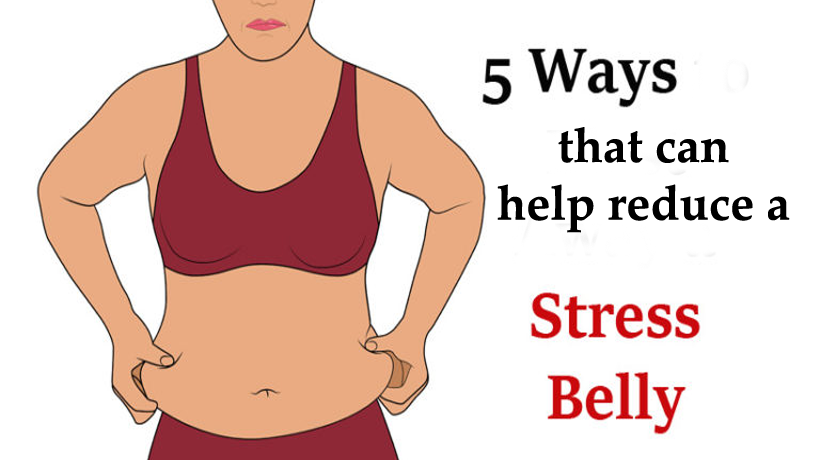To our chagrin, stress is unavoidable. It’s an inevitable fact of life that we must learn to live with, even when it translates into our physical well-being; not only can too much stress result in headaches, muscle tension and digestion issues, but it can also lead to weight gain. When you’re stressed, your brain responds by producing two major hormones: adrenaline and cortisol. The surge of cortisol convinces your body that it needs to replenish its energy bank, even if you’re not hungry(hence: stress eating). The cortisol also encourages the storage of excess glucose in the body as fat, deposited around the abdomen. Luckily, there are tricks you could use to manage the stress and beat the weight gain. Here’s a list of five things you could do to avoid the heinous “stress belly.”
Shake it off
There’s more to exercise than just torching the calories. Staying active is a major stress reducer, and can really help in lowering your cortisol levels. As your blood flow increases, the excess cortisol is carried to the kidneys, where the levels-gone-haywire are stabilized. Regular exercise also increases the metabolism of excess fat in your body. So, blasting the “stress belly” is one of the (many!) reasons you should incorporate exercise into your daily routine.
Eat mindfully
Cortisol makes you feel like you’re really hungry, even if you don’t actually need all of that food you’re scarfing down. Eating slower and more mindfully could help you keep your hunger cues in check, preventing you from overeating. Enjoy each bite, and after you swallow, ask yourself: am I still hungry? If the answer is yes, savor that next bite!
Add in metabolic boosters
Are you a chili fan? Incorporating spicy foods into your meals, like chili peppers or cayenne, could help you raise your metabolic rate, and actually fight stress-induced weight gain. Not only do they help with cravings and feelings of fullness, but research shows how spicy foods could help you burn more calories when eaten before a workout. Bring on the heat and try it for yourself: Sprinkle some red pepper over your next meal (though be careful not to get too heavy-handed)!
Give yourself a treat
Surprised? One of the best ways to curb stress-induced overeating, and to manage cortisol levels, is to refrain from strict dieting. When your cortisol levels increase, your blood sugar shoots up and then shoots back down, making you feel very hungry; this could lead to reaching for three cookies instead of one. So, give yourself that treat… in moderation!
Nix the coffee
…or stick to decaf if you crave the taste. Caffeine consumption, when combined with stress, has been found to spike your cortisol levels even higher than if you were just stressed alone. The excess cortisol could lead to feelings of hunger, and inclinations to stress eat. The next time you’re feeling overwhelmed, skip the java and drink something soothing instead, like chamomile tea; your cortisol levels (and flat tummy!) will thank you later.
Sources:
https://themindsjournal.com/how-to-deal-with-stress-fat/
https://www.prevention.com/weight-loss/g20439118/how-to-prevent-weight-gain-due-to-stress-and-anxiety/?slide=6
http://www.health.com/nutrition/5-ways-to-beat-stress-induced-weight-gain
https://www.webmd.com/diet/features/stress-weight-gain#1



